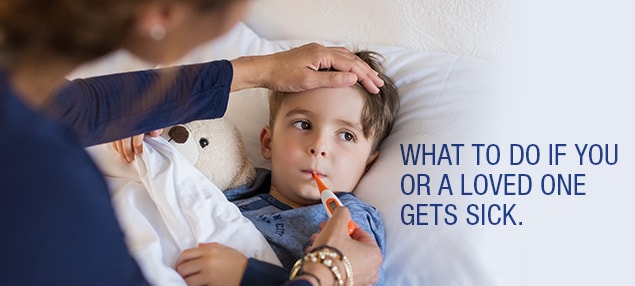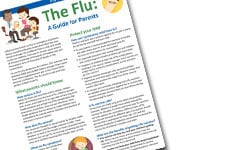

Steps to Take if You Get the Flu
If you get sick with flu symptoms, in most cases, you should stay home and avoid contact with other people except to get medical care. If you have symptoms of flu and are in a high risk group, or are very sick or worried about your illness, contact your health care provider (doctor, physician assistant, etc.). You might need antiviral drugs to treat flu.
| Learn More |

Steps to Take if You Get the Flu
- If you get very sick, are pregnant, or are 65 years or older, or are otherwise at high risk of flu-related complications, call your doctor. You might need antiviral drugs to treat flu.
- Stay at home and rest.
- Avoid close contact with well people in your house so you won’t make them sick.
- Drink plenty of water and other clear liquids to prevent fluid loss (dehydration).
When caring for people who have the flu:
- Avoid being face to face with the sick person. If possible, it is best to spend the least amount of time in close contact with a sick person.
- When holding sick children, place their chin on your shoulder so they will not cough in your face.
- Wash your hands often and right way.
- If soap and water are not available, use an alcohol-based hand rub.
- Make sure to wash your hands after touching the sick person. Wash after handling their tissues or laundry.
























.png)











No hay comentarios:
Publicar un comentario